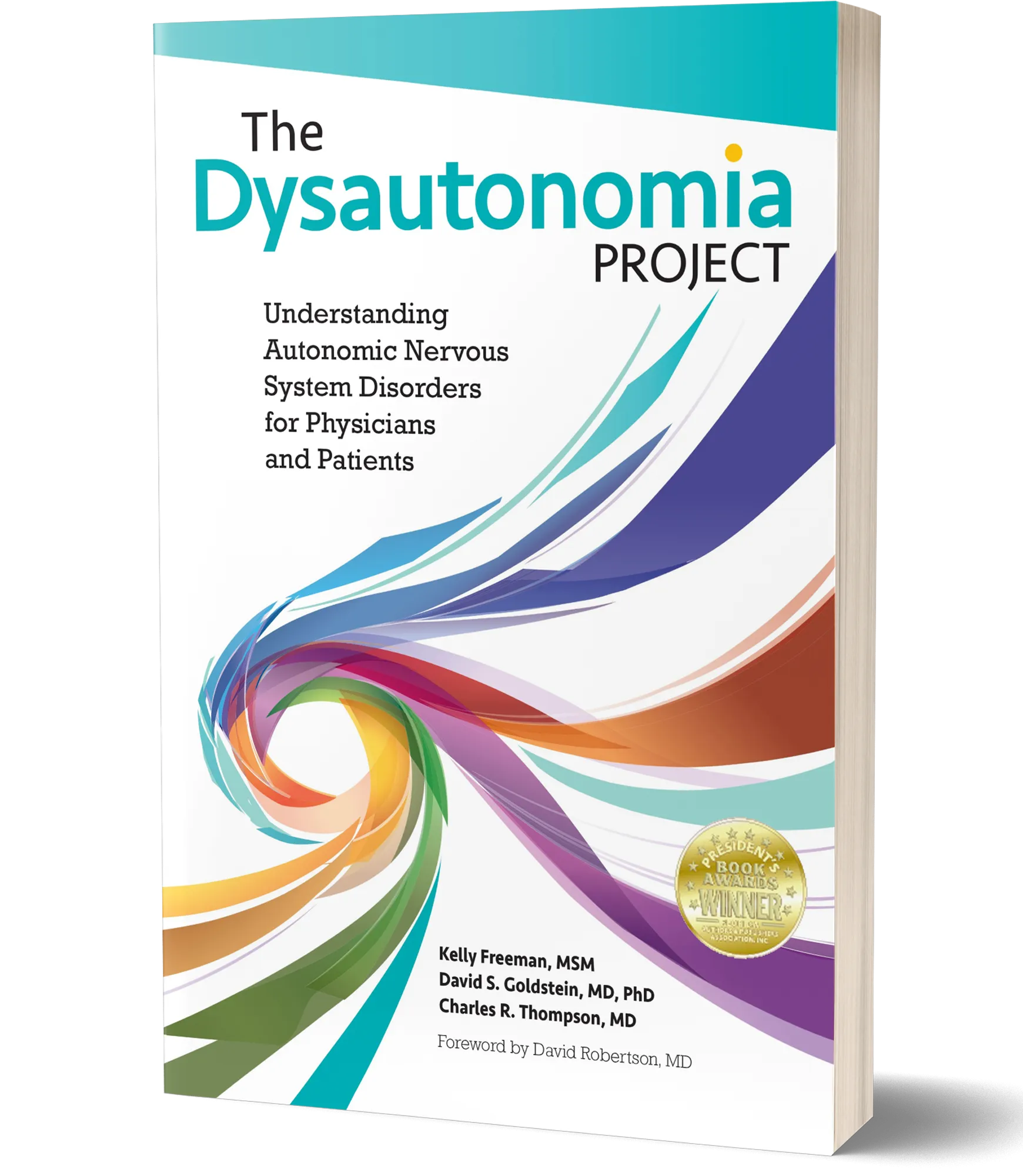
POTS: Postural Orthostatic Tachycardia Syndrome
POTS is the most common autonomic nervous system disorder and an under-recognized health condition that affects teens and adults.

POTS is the most common autonomic nervous system disorder and an under-recognized health condition that affects teens and adults.

POTS is the most common disorder of the autonomic nervous system (ANS) affecting an estimated 1 in 100 teenagers.
Dr. Sandroni discusses many elements of managing POTS patients including: Orthostatic Intolerance, Tilt Table Testing, the important role of hydration and salt as well as a discussion about using IV fluids.
In this video Dr. Low, the physician who coined the term, “POTS”, describes the early days of the development of autonomic medicine and summarizes key findings about POTS in recent years.
In this video Dr. Coleby explains the importance of exercise in autonomic disorders. He also details key criteria for helping patients successfully implement a science-based exercise program.
In this video Dr. Guzman discusses Ehlers Danlos Syndrome (EDS), POTS and Mast Cell Activation Syndrome (MCAS), three coexisting conditions that are sometimes seen together in a segment of the POTS population.
In this video Dr. Peltier discusses POTS and other disorders commonly associated with POTS including small fiber neuropathies, Sjogren syndrome, B12 deficiency, mast cell disorders and others.
In this video, rehabilitation of young POTS patients is explained including key elements of successful rehabilitation.
Dr. Cook discusses his experience in seeing patients with various forms of dysautonomia in the clinic and autonomic laboratory. He emphasizes the importance of understanding the interdisciplinary nature of autonomic dysfunction.

POTS is a mind-body disorder. Neurotransmitters such as norepinephrine, dopamine, adrenaline, serotonin and acetylcholine, which help the nervous system to work, are often released abnormally in patients with POTS and can affect the mental state of the POTS patient.
Some links and features may not work immediately. All links and features will be actively working in the next 24-72 hours. Thank you for your patience.

The Dysautonomia Project book has reached around the world as a much-needed tool for providers, patients or caregivers looking to arm themselves with the power of knowledge.
"I highly recommend this book to not only patients but physicians as well!"
"This book has helped my doctors feel empowered to treat me and recognize other patients who are similarly affected. It helped educate my own family too."
"If you are like me and have been pushing in hard for many years or maybe not so many years...for a diagnosis and just want more information on Dysautonomia conditions then this is the book for you!"
"Truly amazing book, an insight into Dysautonomia, informative and educational for both the patient, family and clinicians."
"Excellent book, on many levels, it helped with understanding links with gastroparesis and hypermobility amongst many other things."
"Very informative. The side of the page which is meant for medical professionals is still very readable for patients and provides all the useful info. Great if you've just been diagnosed or to take along to show your doctor."
"Great book with clear format for both patient and doctor. Lots of information, easy to understand."